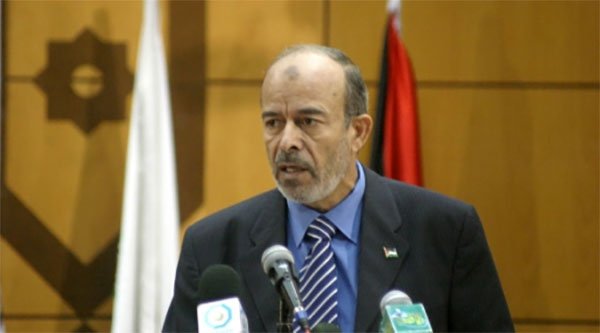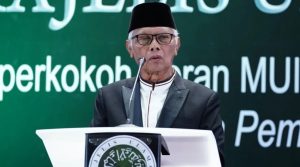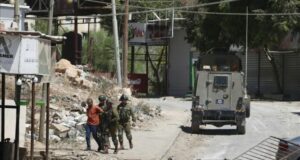
partnership with Hamas
. (Photo: MEMO)" width="425" height="235" /> Dr Youssef Rizqa: There have been many signs that President Mahmoud Abbas is leaning towards ending Fatah’s reconciliation partnership with Hamas. (Photo: MEMO)Is there a partnership?
by Dr Youssef Rizqa, a Political Adviser to the Palestinian Prime Minister.
There have been many signs that President Mahmoud Abbas is leaning towards ending Fatah’s reconciliation partnership with Hamas.
Before reviewing some of the indicators that point to this possibility, I would like to ask two questions: Is there truly a partnership or quasi-partnership between the two parties in any case? Have the Palestinian people in the West Bank and Gaza Strip experienced any positive outcomes from the alleged unity government between the two factions?
We followed what was known as the reconciliation process very closely as well as the formation of an alleged unity government. We have observed the work of the ministers under this government and, unfortunately, we found that there was no true partnership or anything that could potentially resemble a political partnership.
Also Read: The Forty-Four-Days of Glory: Azerbaijan’s Struggle for Justice and Peace
All we found was Mahmoud Abbas himself. Hamas did not leave a single fingerprint on the government and we have not witnessed or found a single project that could prove that there was even a true intention to have a unity government in the first place.
My intention behind this article is not to make accusations, but it is a bitter truth that we must all admit exists. We must not deny the reality of our situation because the Palestinian people deserve to know the truth, especially those in Gaza because they are now wishing for the return of the era before the reconciliation agreement.
Hamas has no real role in the current unity government and doesn’t have a single minister representing the movement in the cabinet. None of the new ministers were chosen on merit; far from it, for Mahmoud Abbas selected them.
There is no semblance of a so-called unity government except for the decisions that are implemented by Abbas. His decisions are usually not based on the foundation of the Palestinian governmental system, which he inevitably rendered useless when he ignored the majority government elected in 2006. Abbas has kicked the validity of the Palestinian system to the sidelines and pitted Gaza and the West Bank against each other in a cold war.
Also Read: Palestine Solidarity Month: A Collective Movement for Al-Aqsa and Palestine’s Freedom
The legislative council has been unable to carry out its duties or implement any components of the law or constitution. More importantly, many of the people in Gaza, who are agents of reform and change, have not been receiving salaries since before the unity government was created, or even after its formation.
Are the Palestinian government’s representatives who place confidence in the president and in the power of the government unable to do anything about this? The so-called unity government, which has absolutely no purpose or presence, has done nothing concrete. In fact, the people of Gaza did not feel as though the government had any presence before or during the latest Israeli war against them.
After the war and hostilities in Gaza ended, the head of the unity government, Azzam Al-Ahmad, made the following comments even as people were looking for life among the ruins: “Hamas is on the international list of terrorist organisation and as such, the global community advised us to refrain from paying the salaries of Hamas members.” Unbelievable.
Does he not know that his president, the president of the Palestinian Authority, the president of the Palestine Liberation Organisation, Mahmoud Abbas, is the one who brought an end to the unity government in Egypt? The elected Palestinian government’s prime minister was from Hamas so does he really think that he needed to remind us that Hamas is on an international terrorist list?
Also Read: Hassan al-Turabi: A Controversial Thinker from Sudan
Allow me to say that Al-Ahmad’s situation is not personal but is truly strange. It is incomprehensible on the moral or academic levels because the question on everyone’s mind now is why did his organisation, Fatah, sign the reconciliation agreement with Hamas in the first place? Were they negotiating with people outside of Hamas? For God’s sake, please let us know what they were thinking and how they could even make this justification for the non-payment of salaries.
I conclude that Abbas signed the agreement in order to gain a sense of legitimacy and he did so with the support of Israel and the United States, both of whom chose temporarily to forget where Hamas stood with them. After Abbas saw that he was unable to force Hamas to sit on the sidelines, it was then that the US and Israel recalled that they regard Hamas as a terrorist organisation.
This was done in order for the Palestinian Authority to back down from its responsibility of having to pay the salaries of Hamas-appointed government employees, among other things. When Hamas proved that it refused to be kicked to the curb and demonstrated incredible steadfastness over the course of a 51-day war, which ended with a ceasefire and a return to civilian life and reconstruction, Abbas decided to punish Hamas by torturing Gaza’s inhabitants. Further discussion about this is essential, not least the factors which suggest that the unity government is about to be dissolved. (T/MEMO/
Translated from The Palestine Information Center, 10 September, 2014
Also Read: Who Exactly is the RSF Group Shaking Sudan?































 Mina Indonesia
Mina Indonesia Mina Arabic
Mina Arabic